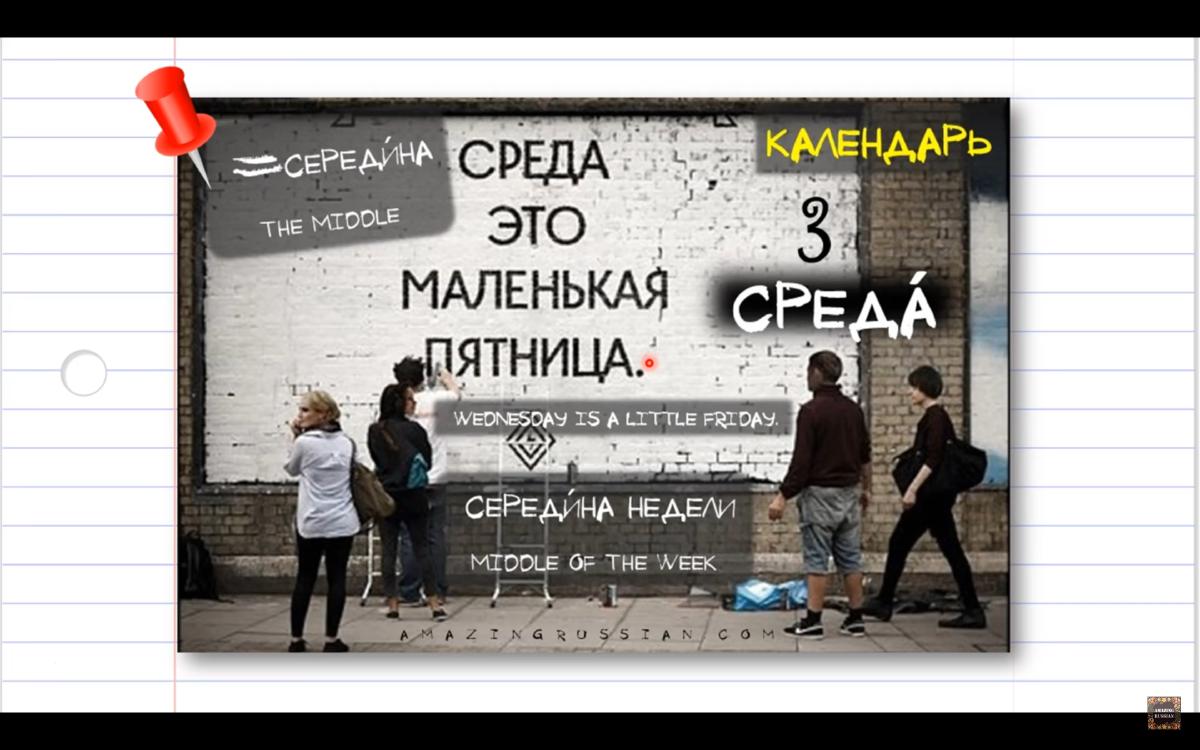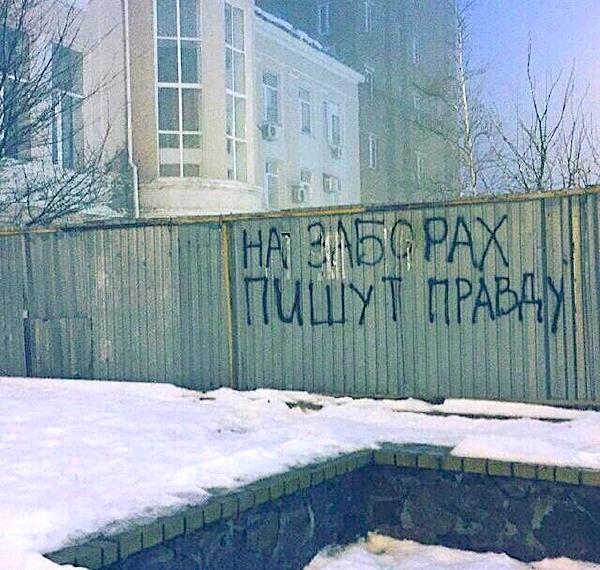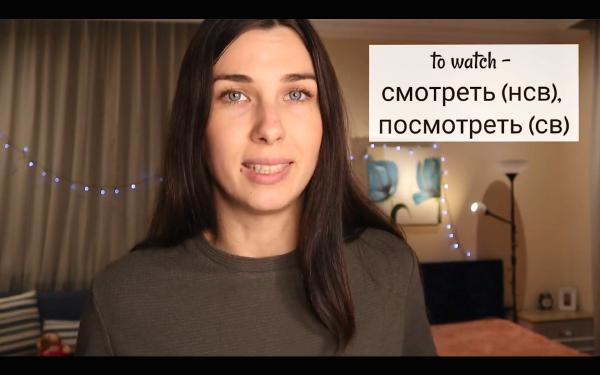Russian Calendar Words: Months and Days
What kind of times do we live in? It’s a question one might ask these days. To get an answer in Russian (or to distract yourself from the times), let’s start by learning the names of the months and days. Here they are gathered together, with a bonus of some etymology and grammar thrown in.
January–December
Let’s start with the months of the year. They’re not particularly exciting—no more interesting than the names you’re used to. The origins are the same: Roman gods and goddesses (January, March, May, June), words (February, April), emperors (July, August), and numbers (September through December). See Month Names from Onze Taal.
Forget about the Romans—here are the Russian names. The months are easy to recognize in sound and spelling: январь, февраль, март, апрель, май, июнь, июль, август, сентябрь, октябрь, ноябрь, декабрь. No need for capital letters.
In … (month): В
You can see it in only three months (March, May, August), but all twelve names are masculine. See Words Ending in ь.
So, no surprises when you want to say “in … (month).” Twelve times in the prepositional case (sixth case), twelve times with в (in), and the ending changes to -e, with the soft signs disappearing: в январе, в феврале, в марте, в апреле, в мае, в июне, в июле, в августе, в сентябре, в октябре, в ноябре, в декабре.
More constructions and grammar in the video below.
More
- Months in Russian – месяцы (Russian with Tamara, 2019, 2 m)
- Months in Russian. Learn all 12 months in 10 minutes! (DYSR, 2018, 8 m)
- 12 months of the year in Russian (Daria Mikhay, 2017, 3 m)
- Learn Russian Months of the Year (Weekly Russian, 2016, 5 m)
- Say the Months of the Year in Russian (Howcast, 2013, 3 m)
- Learn Names of the Months in Russian (SpeakRussianNow, 2013, 5 m)
- The months of the year in Russian (Red Kalinka, 2011, 2 m)
Monday–Sunday
The names of the weekdays come from numbering and order. Понедельник (Monday) marks the start of the неделя (week). That’s the old word for Sunday, the day of не (not) деля (doing). Monday is the первый день (first day) after rest day. Второй (second) gives us вторник (Tuesday), and Wednesday is среда, the middle. Четверг (from четвёртый, fourth) is the fourth day, and the fifth day, пятый день, is пятница (Friday).
The weekend days have different origins. Суббота (Saturday) comes from the Hebrew Sabbath. The word for Sunday, воскресенье, is related to воскресение (resurrection), also reflected in the traditional Easter greeting Христос воскрес, with the response Воистину воскрес.
- Почему дни недели так называются? Ты этого не знал! (Очевидные вещи, 2020, 2 m)
- Понедельник, вторник, среда … Почему дни недели так называются? (Maria Petrova, 2020, 7 m)
- Russian Days of the Week Explained (Weekly Russian, 2014, 4 m)
Check Wikipedia for more on Sunday, in Russian and in English. For the Easter greeting, see Paschal Greeting.
More
- Days of the week. Daily routine in Russian (Russian Vibe, 2019, 4 m)
- Days of the week and time expressions in Russian (Learn Russian with Alfia, 2019, 12 m)
- Days of the Week in Russian (Daria Mikhay, 2017, 3 m)
- Days of the Week in Russian (Learn Russian Now! with Anastasia, 2016, 2 m)
- Русский язык для начинающих. УРОК 44. ДНИ НЕДЕЛИ (Eng Russi, 2016, 1 m)
- Russian Vocabulary: Days of the Week (Дни Недели) (Natalia Worthington, 2014, 2 m)
- The days of the week in Russian (Red Kalinka, 2011, 2 m)
On … day: в and во
From Apprendre le russe, here’s this бесконечная песенка (endless little song) about weekdays. The lyrics are a sort of poetry about the life of a working person.
В понедельник пойду на работу.
И во вторник пойду на работу.
В среду снова пойду на работу.
И в четверг на работу пойду.
Буду в пятницу тоже работать.
А в субботу не буду работать.
В воскресенье не буду работать.
А потом всё сначала начну.
It’s в (on) for all, with во for Tuesday because of the starting letters of вторник. Contrary to what you might think, this is followed not by the prepositional case but by the accusative. So the names ending in a (среда, пятница, суббота) change; the others do not.
More music with days of the week: Дни недели по-русски (Easy Russian With Irene, 2020, 2 m). Days of Week Song in Russian (M O, 2016, 1 m) is set to ABBA’s “Mama Mia”; Jingle Jeff (2014, 2 m) struggled a bit with pronunciation.
See also (and better): Days of the Week in Russian: “on…” (Russian grammar, 2013, 3 m) and Lesson 24 from Anya Golubeva (2020, 6 m).
From … to (с … до) / Up to and including (с … по)
From, Starting From
For “from” or “starting from,” use с plus the genitive case (second case). For Tuesday (вторник) and Wednesday (среда), use со. From Tuesday, from Wednesday: со вторника, со среды.
Until, Up to
Use до for “until” or “up to,” also followed (always) by the genitive.
Up to and Including
Use по for “up to and including.” After по, the accusative case is used because it expresses a distance (in time). From Monday to (and including) Friday: с понедельника по пятницу.
Check out this explanation from Elen Sheff (русский с носителем). From the same channel: Грамматика русского языка: с понедельника по пятницу, с пятого по седьмое… (2017, 5 m) and Предлоги в русском: “НА” и “ПО” (2017, 3 m).
In В, ДО, НА, ПО, С / учим русский (2017, 9 m), more prepositions and calendar words are discussed, including к (by/toward), между (between), после (after), в течении (within/during), через (in/over), накануне (on the eve of), and во время (during).
More








